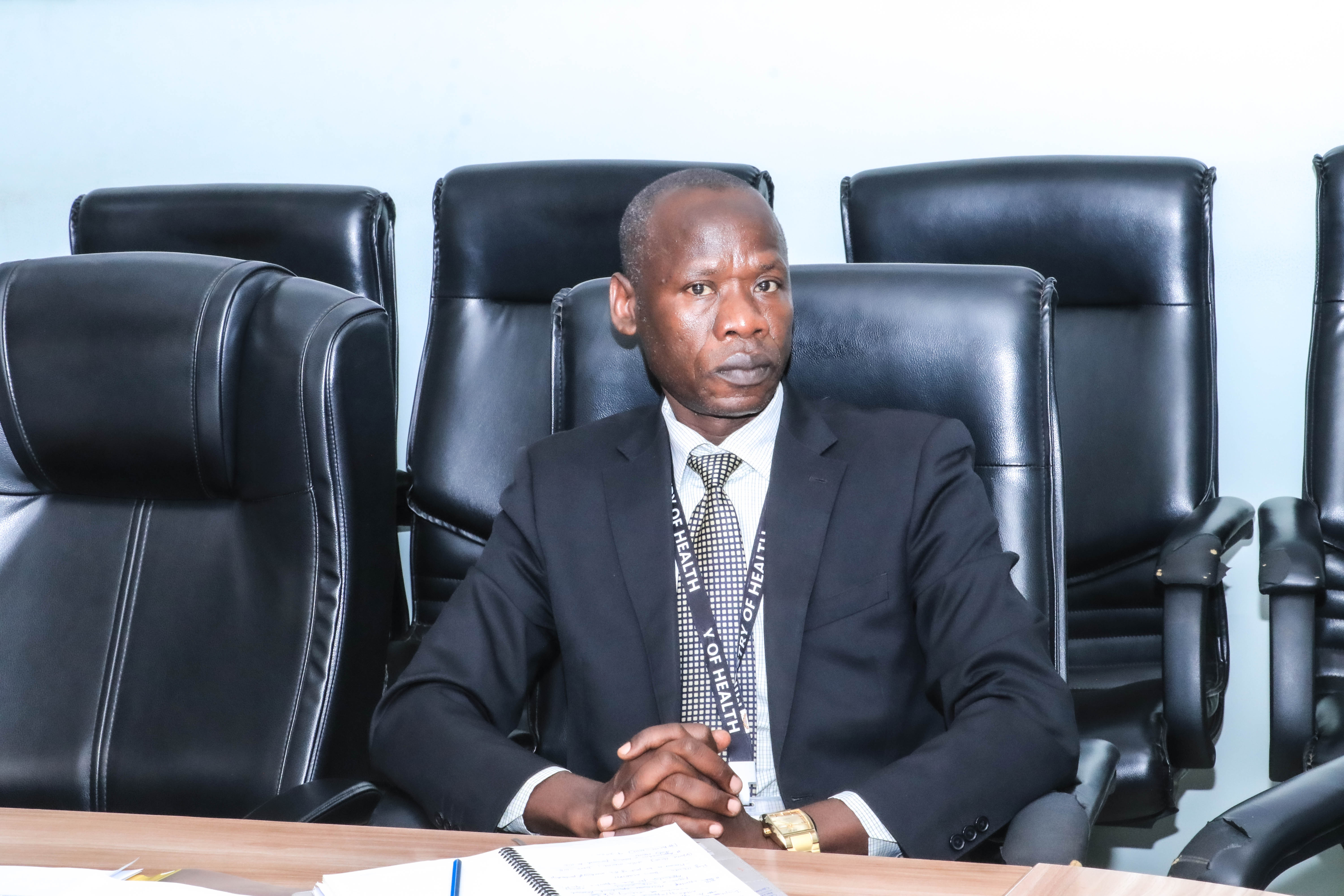
As mental health gains recognition as a critical aspect of overall well-being, a pioneering study is set to delve into its integration in schools, communities and healthcare units across Uganda.
With funding from the World Bank, this landmark study titled; "Assessing the Extent of Integration of Mental Health Services into Primary Healthcare, Community and Schools" will focus on four purposively selected districts in Uganda - Adjumani in the Northern region, Bushenyi in Western Uganda, Kapchorwa in Eastern Uganda, and Butambala in Central Uganda.
With the potential to revolutionize mental health practices in schools, this study will through rigorous research and analysis shed light on the implementation and impact of mental health integration initiatives in schools, uncovering new insights that could shape policies and practices for generations to come.
Latest data from the international Burden of Disease Study indicates that mental illness and substance use disorders account for 3.35% of the total disease burden in Uganda. According to the latest WHO data, at least 7.4% of Ugandans are affected by common mental disorders particularly depression, anxiety and alcohol use disorders.
Comparable to high-income countries, depression and generalized anxiety disorders in Uganda, are prevalent at 5.3% and 4.1% respectively. Uganda ranks among the top five countries globally with the highest depression prevalence. Poverty, HIV infection, disasters, and adverse environmental conditions are factors that increase the risk and consequence of mental health conditions in Uganda.
It is against this background that the World Bank Group solicited for consultancy services for a nation-wide study to assess the extent of integration of mental health services into primary healthcare, schools and communities.
Dr. Juliet Nakku, Senior Consultant Psychiatrist and Executive Director of Butabika National Referral Mental Hospital, during an inception meeting of mental health stakeholders on April 13, stated that the study will reveal the prevalence and types of mental health issues in these settings and their impact on community well-being.
This study that will be conducted by a team of mental health experts from the Ministry of Health and Makerere University School of Public Health. This study will assess the availability, access, and quality of mental health services in PHC, communities, and schools.
The study's Principal Investigator Dr. Nakku further emphasized that the research will assess existing services, identify gaps/barriers, and explore opportunities/challenges in integrating mental health into primary healthcare and schools. This will involve examining policies, resources, support systems, and obstacles to integration.

Over the last 20 years, Uganda has taken measures to enhance its healthcare system and promote better health outcomes for its population. In 1996, the government-initiated efforts to integrate mental health into primary healthcare, providing training for general healthcare workers to identify and address common mental health disorders.
Dr. Hafsa Lukwata, Assistant Commissioner for NCDs and Mental Health at the Ministry of Health, emphasizes that there is increased risk of mental health problems among specific sub-populations, including children, the elderly, refugees, and individuals in uniform.
Dr. Lukwata asserts that the government is addressing mental health through policies that highlight its importance as a fundamental component of health at all care levels. These policies promote decentralization, integration of evidence-based services, and partnerships to increase mental health knowledge and service provision.

She further stresses that mental health conditions impact individuals throughout their lifespan, affecting quality of life. This includes early childhood, adolescence, pregnancy, adulthood, as well as specific groups such as men in uniform, workplace populations, and the elderly who are at an increased risk for mental illnesses.
Uganda, according to Dr. Hafsa invested USD 25m in 2009 to improve mental health facilities and provide training for health workers, with support from the African Development Bank.
"We have set up several health facilities and trained numerous health workers with the support of the African Development Bank," says Dr. Hafsa. "However, there have been no studies to assess the impact of these investments. Routine data from the Ministry of Health Management Information Systems (HMIS) indicates an increase in new patients treated for mental health conditions."
She adds that improvements have been made to the structure of mental health care at all levels to increase the number and mix of mental health professionals.
Despite progress, as noted in the 2018 report of the Sectoral Committee on Health, Uganda still grapples with a significant mental health treatment gap of 85%, leaving only 15% of those in need with access to care. Primary healthcare facilities often refer individuals to higher-level tertiary care, and mental health stigma persists, with limited awareness among the general population, as highlighted by the World Bank.
To bridge the gap, WHO suggests integrating mental health services into PHC systems in countries like Uganda. However, challenges such as prioritization, poverty, cultural differences, health system issues, medication supply, workforce shortages, and inflexibility pose barriers to this integration.
Dr. Nakku acknowledges that mental health has received policy priority in Uganda, but gaps remain in delivering services at primary care, community, and school levels, leaving some populations underserved.
"Mental health problems are risk factors for various public health concerns, such as road traffic accidents and injuries. The role of alcohol and substance use in these issues is significant. Integrating mental health into primary health care may be a cost-effective solution with desirable treatment outcomes. There have been efforts to integration. We now want to assess the extent of integration into PHC, communities and schools in Uganda," explained Dr. Nakku.
The study aims to evaluate the Knowledge, Attitudes, and Practices (KAP) related to mental health care/services among a total of 1380 individuals, including 45 students/pupils from each of the 33 schools. The assessment will focus on both teachers, learners’ senior women teachers, school nurses and matrons.
Dr. Fredrick E. Makumbi, an Associate Professor of Biostatistics at MakSPH outlined how the study will use qualitative and quantitative data to comprehensively understand mental health integration in Uganda. He provided specifics on the quantitative component, including the study population, sample size, sampling procedure, and data analysis plans. He stressed that the collected data will yield indicators for developing a composite measure of integration, stratified by primary healthcare, communities, and schools.

"This study is quite interesting because we have primary health care units as a study population. We shall randomly pick study participants from the villages and schools served by the health care units. We also have plans to construct an Integration of Mental Health Services/Care Composite (IMHC) based on scores from the items/indicators of integration at each of the 3 levels. Each indicator present will be scored '1' else '0', and a total score will be obtained as the sum of all individual indicator scores. The proportion of schools/communities/PHC facilities generated will be based on an agreed cut-off," explained Dr. Fred Makumbi, a Co-Principal Investigator of the MHISU study.
Professor Rhoda Wanyenze, the Dean and study Advisory team member expressed her enthusiasm for hosting a study highlighting that mental health was "an integral part of our lives." Accordingly, she stressed MakSPH's commitment to increasing mental health knowledge through research and expressed her delight in partnering with Butabika Hospital, citing their history of effective teamwork. "The School of Public Health will document the learnings from this study and this study is not a one-off."

Dr. Wilson Winstons Muhwezi, an Associate Professor in the Department of Psychiatry at Makerere University College of Health Sciences, provided insights on the qualitative component of the study during the discussion. He emphasized the purpose of describing and providing context for integration, and how the study team aims to explain trends, relationships, consistencies, and inconsistencies through the numerous question items they have put together.
“We think if we are able to go to very many subpopulations that we have marked out for purposes of collecting this qualitative data, we shall be able to provide context and meaning according to the data sources themselves so that we have better appreciation of what is going on,” says Dr. Muhwezi.

Dr. Muhwezi expressed excitement to be part of a study that recognizes the value of qualitative data in increasing the wealth of knowledge. “As far as I am concerned, I am very excited about this study because rarely do we get to do studies where the qualitative approach is given prominence like the quantitative approach. I think we will get good information when we come from the field.”
Dr. Oyoo Charles Akiya, the Commissioner NCDs-Ministry of Health, expressed the Ministry's keen interest in the upcoming study on Ugandan mental health during an inception meeting chaired on their behalf. He emphasized that understanding the mental health needs of Uganda will lead to better interventions and contribute to achieving Sustainable Development Goal 3 - Good Health and Well-being.

According to Dr. Oyoo, Ministry of Health will support the study team and that it was eager to learn more about the study and how they can be of service. He expressed gratitude to the World Bank, MakSPH, and Butabika Hospital for their contribution to improving mental health care in Uganda.

By Davidson Ndyabahika.

